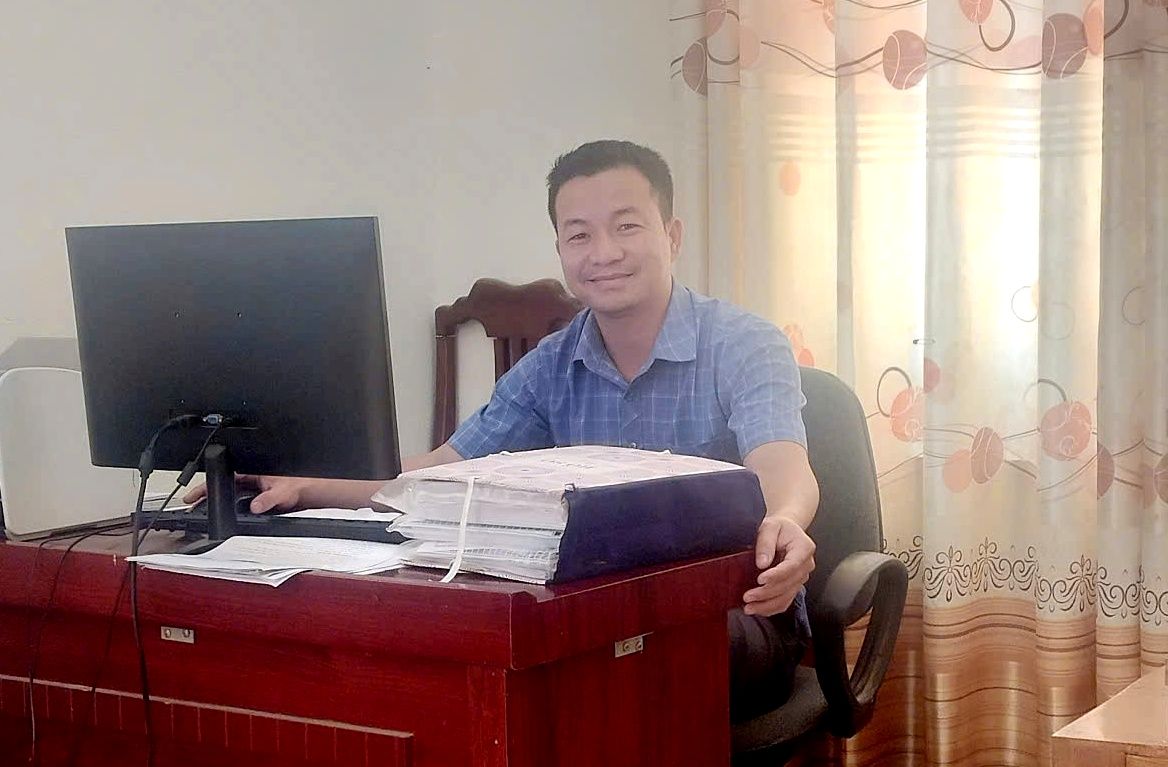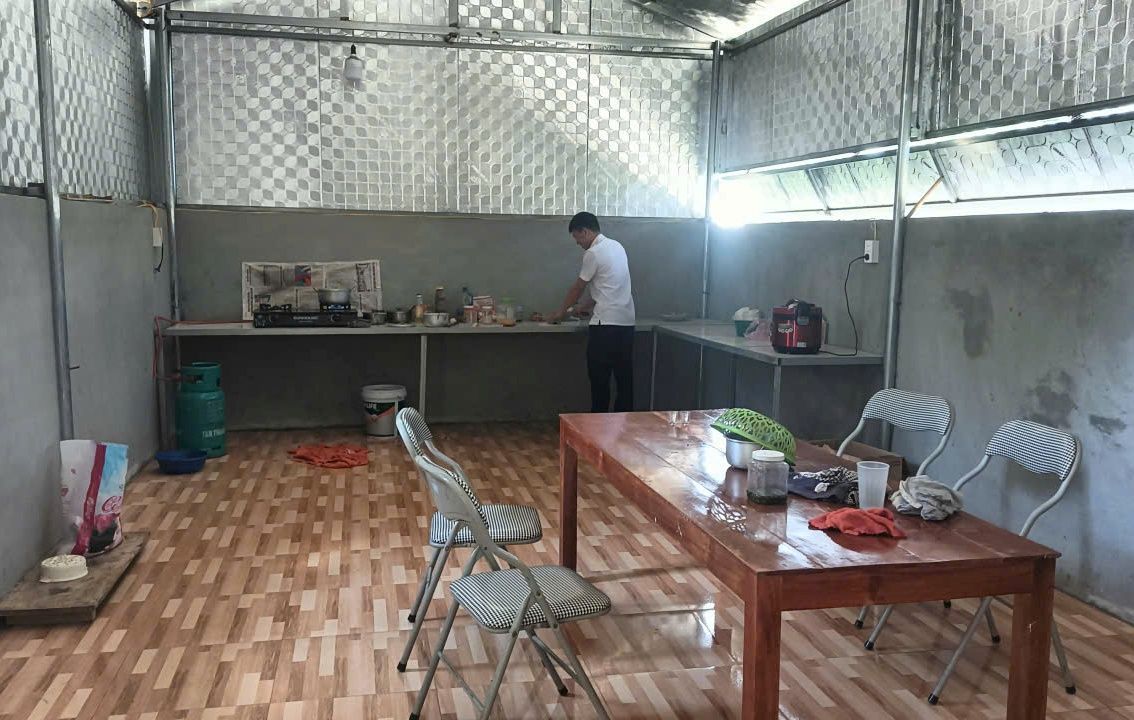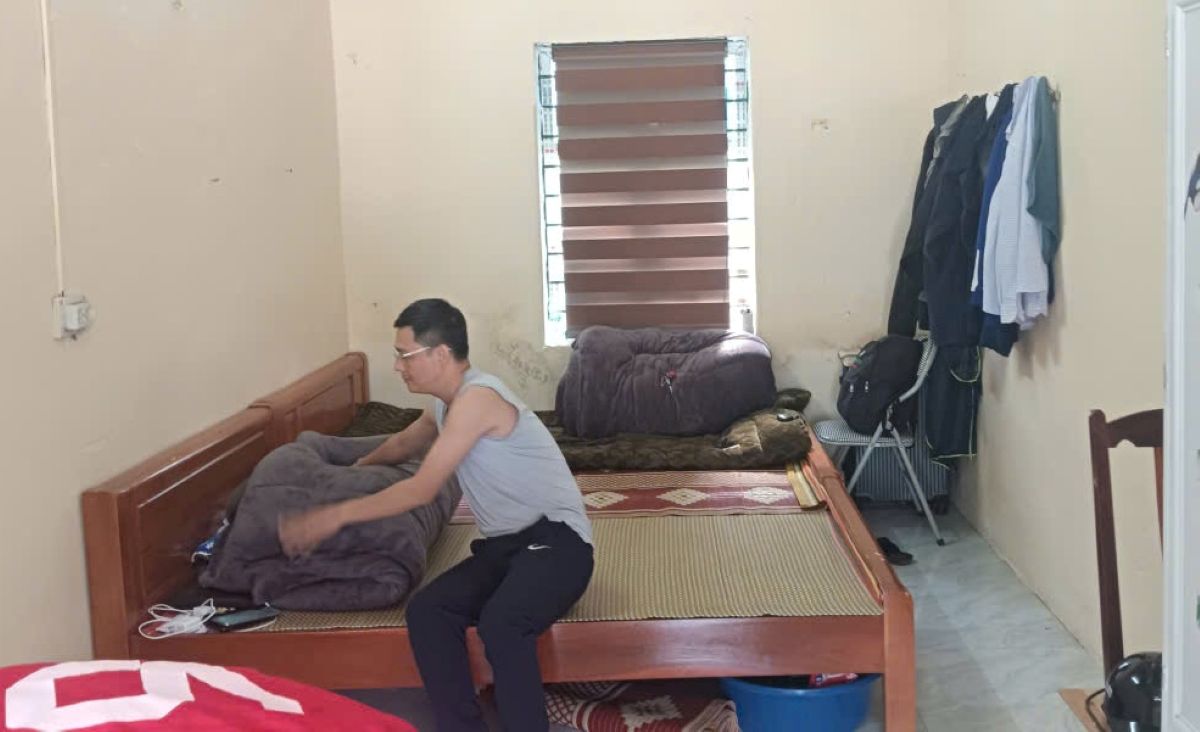Coming to people in remote areas
Sharing with PV of Lao Dong Newspaper, Mr. Nguyen Truong Sinh - cultural officer of Yen Thang commune, Thanh Hoa province said that he is one of hundreds of volunteer cadres and was mobilized from plain communes to mountainous areas to work, solving the shortage of cadres in these localities after the local authorities at both levels came into operation.

In early August 2025, I was transferred to work as a civil servant of the Department of Culture of Yen Thang commune. It has been more than 3 months, all work from administrative procedures, staying in the village to the place to eat and rest has stabilized, catching up well" - Mr. Sinh shared.
According to Mr. Sinh, since working in Yen Thang commune (a mountainous commune of Thanh Hoa province), more than 100km away from his home in Hau Loc commune, he has been arranged a place to rest at the old infirmary, with spacious and airy facilities. Eating and drinking are also convenient thanks to the shared dining area for staff working away from home.
Regarding work, Mr. Sinh said that as soon as he stabilized his residence, he started performing assigned tasks, supporting people in handling administrative procedures.

"The advantage is that the population in mountainous communes is not as large as in plain communes, so there are fewer citizen transactions. The difficulties are similar to other mountainous communes: getting used to the culture, language and village areas requires more time to keep up with the rhythm" - Mr. Sinh said.
According to Mr. Sinh, Yen Thang commune currently has 8 cadres from the communes in the lowlands to strengthen. After arriving, the officials quickly coordinated with the authorities to resolve the work and policies for the people in a dedicated and quick manner. Currently, all previously pending documents and procedures have been completely resolved.
Striving to complete all tasks
Mr. Sinh said that the increase of cadres in the lowlands to the mountains has clearly demonstrated the effectiveness in operating the new government apparatus. However, not only Yen Thang commune but many other communes are lacking cadres, forcing one person to concurrently hold many positions in many fields and jobs.

"To overcome this, the brothers encouraged each other to try, even work all day on the weekend, work at night to promptly resolve procedures and complete assigned tasks" - he said.
According to Mr. Sinh, for cadres far from home like him, the commune leaders have created maximum conditions to visit their families. In return, the staff always show a sense of responsibility, ready to stay on weekends, work in the evening when the locality has many events or workloads.
Mr. Sinh also said that during many months away from home, he was lucky to receive support and encouragement from his family to overcome the initial difficulties. In addition, the current support regime for cadres transferred to temporary mountainous communes is stable (from 1.25 to 1.75 times the basic salary/month).
For cadres from the plains to work in mountainous communes like us, everyone is determined to strive to overcome difficulties and complete their tasks. We just hope that in the near future, mountainous communes that are lacking in cadres will soon be supplemented. This not only helps to operate the government smoothly, clearly with people and work, but also resolves administrative procedures for people quickly and promptly" - Mr. Sinh shared.











